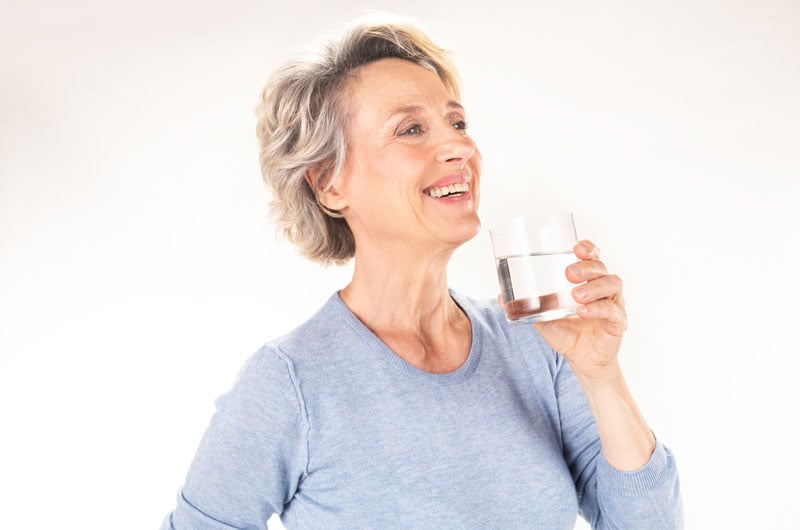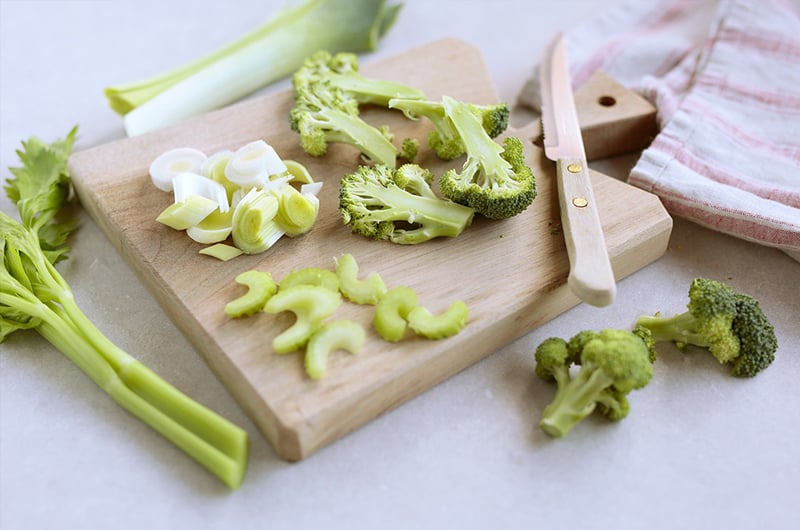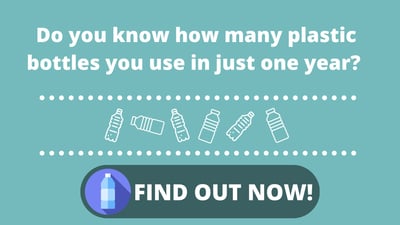Laica Blog
Ideal hydration: how, when and how much water to drink
Often, when people talk about diets, detox periods or body rebalancing, they mostly talk about food. It's all too easy to forget, however, that proper hydration is essential for our wellbeing.
As we all know, our body is composed mainly of water: Ministry of Health sources state that the percentage in an adult is approximately 60% of body mass. In reality, this figure varies according to age: newborns can reach percentages as high as 77% of their entire body mass, while in an elderly person, it can be as low as 50% (the percentage can be even lower in those over 100 years old).
It is clear that regularly hydrating our bodies is very beneficial for our health and wellbeing.
Why is hydration important?

Water is the most important element in our cells. Regular hydration helps maintain a proper balance in all of our body's functions.
Water is crucial during digestion because it regulates the absorption and transport of nutrients. It plays a vital role in helping cells to eliminate waste substances. Proper hydration also allows water to perform a key life function: regulating body temperature.
An insufficient intake of water can easily lead to problems like dry skin, headaches, confusion and muscle cramps.
How much should you drink each day

Your daily water intake should be between 2 and 3 litres. At moderate temperatures and during normal physical activity, an adult needs this amount to replenish normal fluid loss.
The European Food Safety Authority's scientific panel also differentiates the daily requirement according to gender: about 2 litres for women and about 3 litres for men.
Children under 8 years of age need about 1.5 litres of water per day. Children, adolescents (and the elderly) are particularly susceptible to dehydration, as they can be affected by a loss of awareness of thirst and the natural urge to drink. So, it's really important to be extra careful around these groups and remind them to drink plenty of fluids during the day.
As the temperature rises (i.e. in summer), the amount of water we need to drink increases as our perspiration increases. In hot environments and air-conditioned offices with low humidity, the risk of dehydration and over-perspiration must be counterbalanced with extra hydration.
Likewise, when working out, mountain hiking, or engaging in any other kind of prolonged exertion, especially in direct sunlight, we must remember to stay hydrated by drinking plenty of water before, during, and after the activity. Doing so can also lower the risk of injury or cramping.
Before: drink about half a litre of water before you go to the gym or start a run.
During: remember to take a break every 20 to 30 minutes and drink a glass of water.
After: drink at least 3 to 4 glasses of water to replenish minerals lost through sweating.

What to drink
"Lost water is not only replenished with water."
Water is an essential nutrient for our bodies, and experts suggest that up to 20% of our daily water requirements can be obtained from the food we consume. This is significant, and opting for water-rich foods can help us stay hydrated, particularly in warmer weather.
Of course, the remaining approximately 80% of our daily water intake comes from drinking. Absorbing water is the most effective way to stay hydrated, and access to tap water at home, thanks to your reliable local water supply, is incredibly convenient.
Now you might like something more satisfying to drink with some tasty food during a workday break or when out for a meal with friends.
When it comes to choosing a refreshing drink, there are several options to consider. For instance, you can opt for bottled or freshly-squeezed fruit juices, homemade smoothies, or iced tea. During autumn and winter, herbal and fruit teas can also be a great choice for staying hydrated while indulging in a delicious drink. What’s more, using high-quality filtered water can enhance the flavour of your beverages even further.
When to drink

You may have heard of the famous 'magic formula' for staying hydrated: drink a glass of water every hour or so, very slowly. It is hardly very practical on a typical day. It is all too easy to get distracted by work, children, unexpected calls or housekeeping.
To stay hydrated, try sipping small amounts of liquid throughout the day. This will help your body adjust to accepting fluids, whether it's fresh juice, packaged juice, or plain water.
A tip for helping you remember to drink that is easy to put into practice right from the start is to get yourself a flask or bottle – ideally a filter bottle – which is easy to carry and simple to refill from the tap at home or in the office.






It's your turn, leave your comment!
Get the latest from the Laica blog